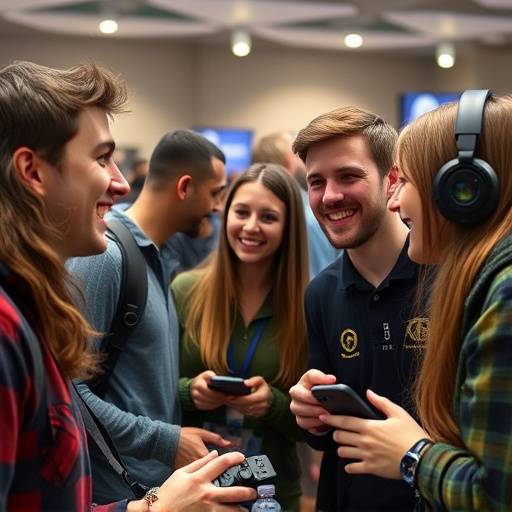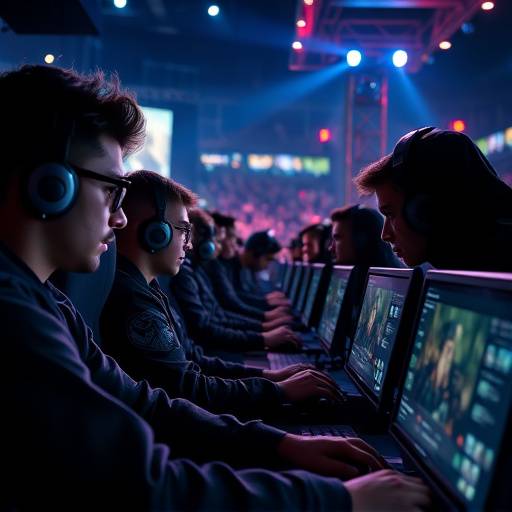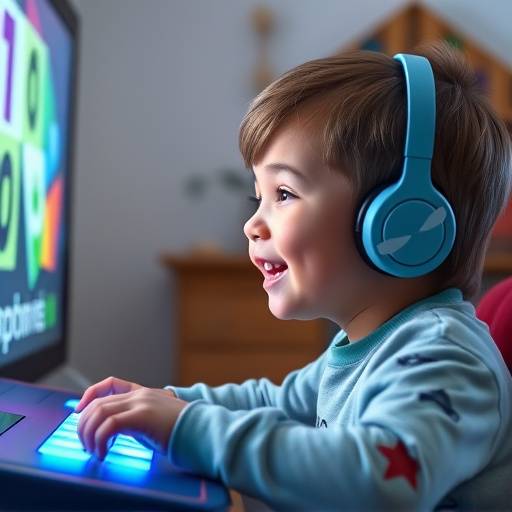The Heart of Gaming: Community
Building Bonds Through Shared Experiences
Gaming communities are more than just groups of players; they are thriving ecosystems built on shared passions, mutual support, and the thrill of overcoming challenges together. From sprawling online forums to local meetups in cities like San Francisco, these communities foster connections that extend beyond the digital realm.
Explore the diverse tapestry of gaming communities, from dedicated guilds in massively multiplayer online role-playing games (MMORPGs) like "EverQuest" and "World of Warcraft," where players coordinate complex raids and build lasting friendships, to the bustling chat rooms and forums dedicated to esports titles like "League of Legends" and "Counter-Strike: Global Offensive," where fans dissect strategies and celebrate victories.
Within these communities, you'll find individuals from all walks of life, united by their love of gaming. Veterans share their wisdom with newcomers, experienced players mentor aspiring esports professionals, and community leaders organize events and tournaments that bring people together. The sense of belonging and camaraderie that these communities provide is invaluable, especially for those who may feel isolated or marginalized in other areas of their lives.
Dr. Anya Sharma, a leading sociologist at the University of California, Berkeley, studies the dynamics of online gaming communities. "These communities offer a unique space for individuals to express themselves, connect with others who share their interests, and develop valuable social skills," she explains. "They are a powerful force for social connection in an increasingly digital world."
Explore Communities
The Power of Teamwork: Collaboration
Achieving More Together: Collaborative Gaming
Collaboration is at the heart of many modern gaming experiences. From cooperative campaigns in games like "Borderlands" to the strategic teamwork required in multiplayer online battle arenas (MOBAs) like "Dota 2," players are constantly working together to achieve common goals. This collaborative spirit fosters communication, problem-solving skills, and a sense of shared accomplishment.
The rise of esports has further amplified the importance of collaboration in gaming. Professional esports teams spend countless hours practicing together, refining their strategies, and developing the communication skills necessary to succeed at the highest level. The ability to work effectively as a team, even under intense pressure, is a crucial factor in determining which teams emerge victorious.
Beyond esports, collaborative gaming is also making its mark in education and training. Simulation games are being used to train professionals in fields such as healthcare, emergency response, and engineering. These simulations provide a safe and engaging environment for individuals to practice their skills and learn how to work together effectively in high-stakes situations. For instance, "Virulent Skies," a game developed in San Francisco, simulates pandemic response scenarios, allowing public health officials to hone their collaborative strategies in a realistic virtual environment.
Professor Kenji Tanaka, a game design expert at Stanford University, notes that "Collaborative gaming provides a unique opportunity for individuals to develop essential teamwork skills in a fun and engaging way. These skills are highly valued in today's workforce, making collaborative gaming a valuable tool for education and professional development."
Explore CollaborationThe Thrill of Victory: Competition
Pushing Boundaries: Competitive Gaming and Esports
Competition is a driving force in the gaming world, pushing players to hone their skills, strategize effectively, and strive for victory. From casual online matches to high-stakes esports tournaments, competitive gaming provides a platform for individuals to test their abilities and showcase their talents. Esports has exploded in popularity in recent years, transforming gaming from a hobby into a legitimate profession for many talented players.
Esports tournaments attract millions of viewers both online and in-person, with prize pools reaching staggering sums. Games like "Fortnite," "Call of Duty," and "Overwatch" have established vibrant esports scenes, with professional teams competing for glory and financial rewards. The skill and dedication required to succeed in esports are immense, with players dedicating countless hours to practice and refinement.
The competitive spirit in gaming extends beyond esports, influencing the design and development of many popular games. Game developers are constantly seeking ways to create engaging and challenging competitive experiences that will keep players coming back for more. Leaderboards, ranked matchmaking systems, and in-game tournaments are just a few examples of how competition is integrated into the fabric of modern gaming.
"Competition in gaming is not just about winning or losing; it's about pushing yourself to improve, learning from your mistakes, and striving to achieve your full potential," says Maria Rodriguez, a professional esports coach based in San Francisco. "It's about the journey of self-improvement and the camaraderie that comes from competing alongside others who share your passion."
Explore Competition
Beyond Entertainment: The Impact of Gaming

Shaping Society: The Broader Impact of Gaming
The impact of gaming extends far beyond entertainment, influencing various aspects of society, including education, healthcare, and social activism. Educational games are being used to teach children valuable skills in subjects such as math, science, and language arts. Simulation games are providing realistic training scenarios for professionals in a variety of fields. And games are being used to raise awareness about social issues and promote positive change.
Gaming can also have a positive impact on mental and physical health. Studies have shown that playing video games can improve cognitive function, enhance problem-solving skills, and reduce stress. Exergames, which combine exercise with gaming, are helping people of all ages to stay active and healthy. Games like "Ring Fit Adventure" and "Just Dance" provide engaging and effective ways to get exercise without even realizing you're working out.
However, it's important to acknowledge the potential negative impacts of gaming, such as addiction, social isolation, and exposure to violent content. Responsible gaming habits, parental guidance, and a balanced lifestyle are essential for mitigating these risks. Pixel Pioneers is committed to promoting responsible gaming and providing resources to help individuals and families navigate the potential challenges of the gaming world.
"Gaming has the potential to be a powerful force for good in the world, but it's crucial to approach it responsibly and with awareness of its potential impacts," says David Lee, a policy analyst at the Electronic Frontier Foundation in San Francisco. "By promoting responsible gaming habits and fostering positive online communities, we can harness the power of gaming to create a more connected, educated, and engaged society."
Explore ImpactGaming for Everyone: Accessibility
Making Gaming Inclusive
At Pixel Pioneers, we believe gaming should be accessible to everyone, regardless of ability. We are committed to promoting accessibility in gaming through inclusive design practices and advocacy. Learn more about our efforts to create a more inclusive gaming environment.
Learn About Accessibility